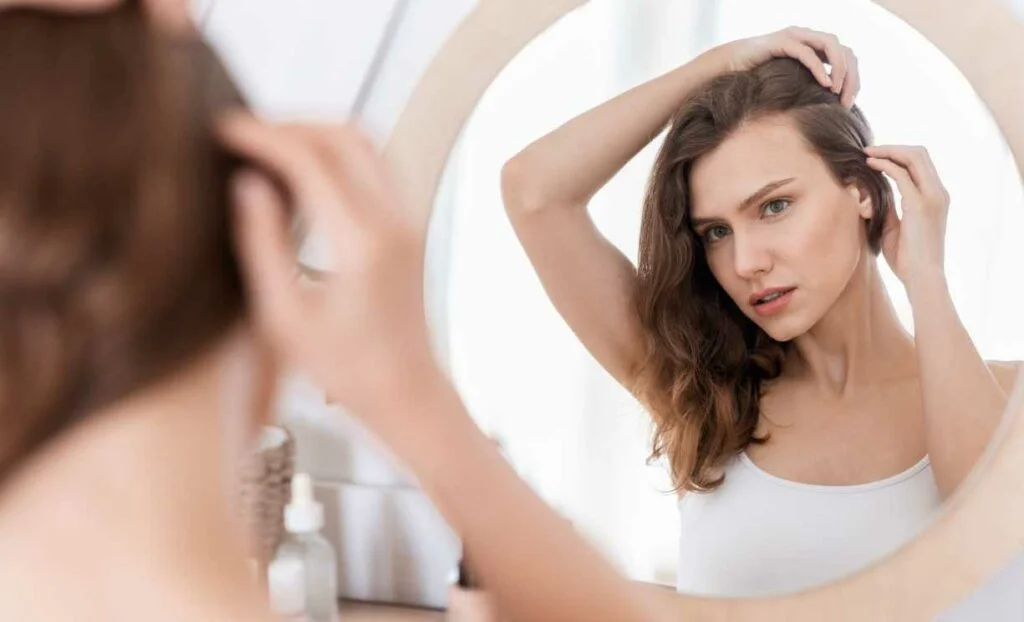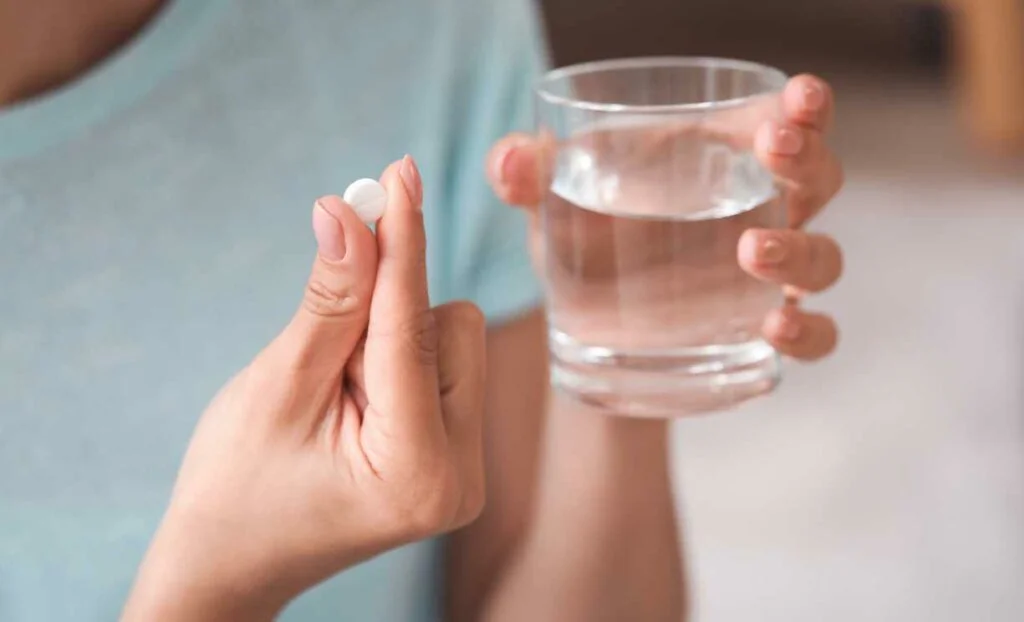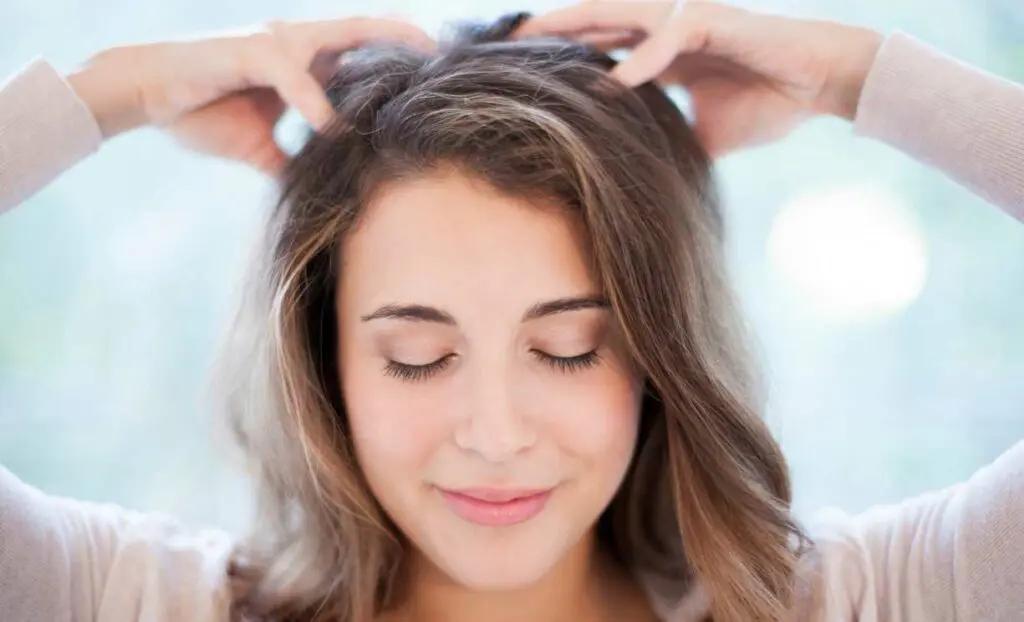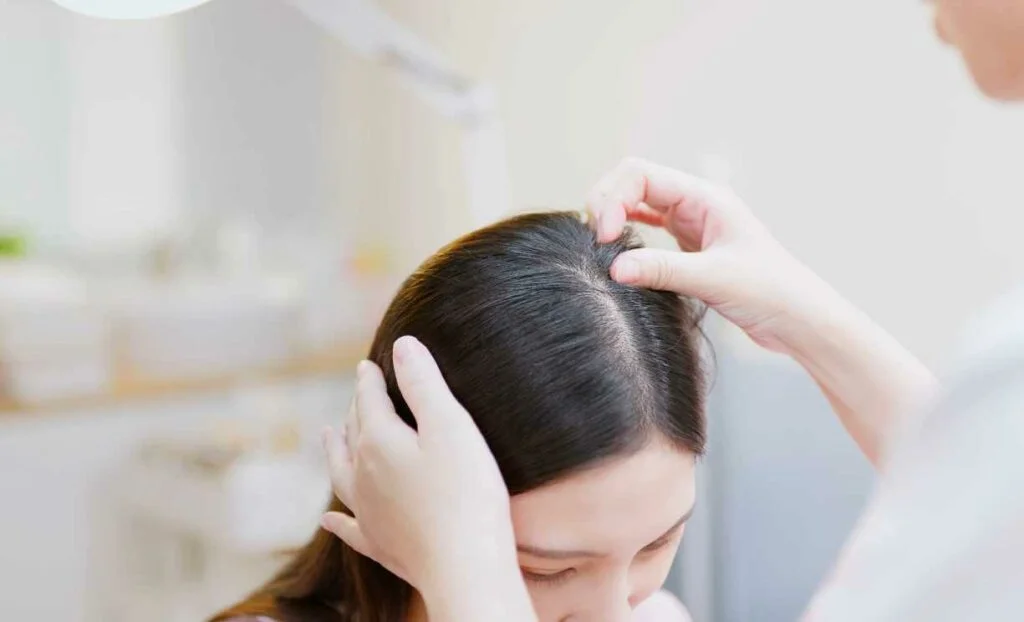Menopause is a natural phase in a woman’s life, but the hormonal fluctuations that accompany it can bring about a range of changes, including thinning hair. Hair loss during menopause can be distressing, impacting self-esteem and confidence. In this blog, we’ll explore the causes of hair thinning during menopause and delve into the best treatment options to help you restore and maintain healthy, vibrant hair.
Contents
Does Menopause Cause Hair Thinning?
Yes, menopause can cause hair thinning. During menopause, the body goes through hormonal changes, particularly a decrease in estrogen levels. Estrogen plays a crucial role in promoting hair growth. With its decline, the hair growth cycle can be affected, leading to thinner hair strands and sometimes hair loss. Additionally, the influence of androgens may become more pronounced, contributing to further thinning.
While it’s a common and natural part of aging, menopausal hair thinning can impact self-esteem. Fortunately, there are various treatments and strategies available to help manage and address this concern, from hormone replacement therapy to topical treatments and nutritional support. Seeking advice from healthcare professionals can guide individuals in finding the most suitable solutions for their unique needs.
Best Treatment Options For Thinning Hair
Addressing thinning hair involves a multifaceted approach, and several treatment options are available to promote hair health. Here are some of the best treatment options:
- Hormone Replacement Therapy (HRT): Hormone replacement therapy, particularly estrogen supplementation, can help counteract hormonal imbalances that contribute to hair thinning during menopause. Consultation with a healthcare professional is crucial to determine the suitability of HRT based on individual health considerations.
- Topical Minoxidil: Minoxidil is an FDA-approved topical treatment that stimulates hair follicles and encourages hair growth. Applying it directly to the scalp can result in thicker and healthier hair. It’s important to consult with a healthcare provider before starting any topical treatments.
- Nutritional Supplements: Addressing nutrient deficiencies is key to promoting hair health. Biotin, iron, vitamin D, and other essential vitamins and minerals can be included in the diet or taken as supplements to support hair growth. However, individual nutritional needs should be assessed with the guidance of a healthcare professional.
- Low-Level Laser Therapy (LLLT): LLLT is a non-invasive treatment that uses low-level lasers or light-emitting diodes to stimulate hair follicles, promoting hair growth. This therapy can be administered through devices like laser combs, helmets, or caps.
- Prescription Medications: Prescription medications, such as finasteride, may be recommended to inhibit the effects of androgens on hair follicles. As with any medication, consultation with a healthcare provider is essential to determine the appropriateness of prescription treatments.
It’s crucial to note that the effectiveness of these treatments can vary among individuals. A personalized approach, guided by healthcare professionals, ensures that the chosen treatments align with individual health needs.
Home Remedies For Thinning Hair Due To Menopause
While seeking professional advice is crucial, there are also some home remedies that may complement a comprehensive approach to addressing thinning hair due to menopause. Here are some home remedies to consider:
- Scalp Massage: Regular scalp massages with essential oils like lavender, rosemary, or cedarwood oil can stimulate blood flow to the hair follicles, promoting hair growth. Gently massage the scalp for a few minutes several times a week.
- Aloe Vera Gel: Aloe vera has soothing properties and may promote a healthy scalp. Apply aloe vera gel directly to the scalp, leave it for 30 minutes, and then rinse it off. Repeat this process a few times a week.
- Egg Mask: Eggs are rich in proteins that can benefit hair health. Create an egg mask by beating an egg and applying it to the hair and scalp. Leave it for 20 minutes before washing it out with a mild shampoo.
- Onion Juice: Extract juice from an onion, apply it to the scalp, and leave it for 15-30 minutes before washing it off. The smell can be strong, so rinse thoroughly.
- Green Tea Rinse: Green tea contains antioxidants that may help improve hair health. Brew green tea and let it cool. Use it as a final hair rinse after shampooing.
- Omega-3 Fatty Acids: Include foods rich in omega-3 fatty acids, such as flaxseeds, chia seeds, and fatty fish, in your diet. These nutrients contribute to overall hair health.
- Avoid Harsh Hairstyles: Minimize the use of tight hairstyles or hairstyles that pull on the hair. Opt for loose styles to reduce stress on the hair shaft.
- Stay Hydrated and Maintain a Balanced Diet: Drinking enough water and maintaining a balanced diet with sufficient vitamins and minerals can help. Ensure you’re getting essential nutrients like biotin, iron, and vitamins A and E.
When To See A Doctor?
It’s advisable to see a doctor if you experience persistent or concerning symptoms related to thinning hair, especially during menopause. Here are some situations that warrant a visit to the doctor:
- Sudden or Severe Hair Loss: If you notice a sudden and significant increase in hair shedding or a rapid thinning of hair, it’s important to consult with a healthcare professional. This could be indicative of an underlying health issue that needs attention.
- Changes in Hair Texture or Scalp Health: Any noticeable changes in the texture of your hair or the condition of your scalp, such as redness, itching, or the appearance of scales, should prompt a visit to the doctor. These changes may indicate a scalp or dermatological condition that requires evaluation.
- Hair Thinning Along with Other Symptoms: If hair thinning is accompanied by other symptoms, such as fatigue, weight changes, or changes in the menstrual cycle, it could be a sign of an underlying hormonal imbalance or health issue that needs investigation.
- Family History of Hair Loss: If there is a family history of hereditary hair loss, and you are concerned about your own hair thinning, consulting with a healthcare professional can help determine if there are preventive or treatment options available.
- Menopausal Symptoms Impacting Quality of Life: If menopausal symptoms, including hair thinning, are significantly impacting your quality of life or causing emotional distress, seeking guidance from a doctor or a healthcare professional specializing in women’s health can provide support and potential treatment options.
- Unexplained Physical or Emotional Changes: If you are experiencing unexplained physical or emotional changes along with hair thinning, it’s crucial to discuss these with a healthcare provider. Changes in hair health can sometimes be a reflection of broader health issues.
Can Hair Thinning Due To Menopause Be Prevented?
While hair thinning during menopause is a natural occurrence due to hormonal changes, there are steps you can take to minimize its impact. Maintaining a healthy lifestyle by eating a balanced diet, staying hydrated, and managing stress can contribute to overall well-being, including the health of your hair. Additionally, incorporating hair-friendly nutrients like biotin, iron, and vitamins into your diet may support hair health.
Regular scalp massages and using mild, nourishing hair care products can also be beneficial. If you’re concerned about hormonal imbalances contributing to hair thinning, consulting with a healthcare professional for guidance and exploring potential treatments, such as hormone replacement therapy, can be proactive steps. While complete prevention may not be possible, these practices can help promote healthier hair during the menopausal transition.
Conclusion
In conclusion, addressing thinning hair during menopause involves a multifaceted approach, and finding the best treatment requires a combination of professional guidance and personalized strategies. The hormonal fluctuations during menopause can significantly impact hair health, leading to concerns about thinning and loss. However, with advancements in medical treatments and a growing understanding of menopausal changes, there are effective options available.
Ultimately, the journey to combating thinning hair during menopause is a collaborative effort between individuals and their healthcare providers. By staying informed, proactive, and seeking timely professional advice, women can navigate this phase with confidence, embracing effective treatments that suit their unique needs.





